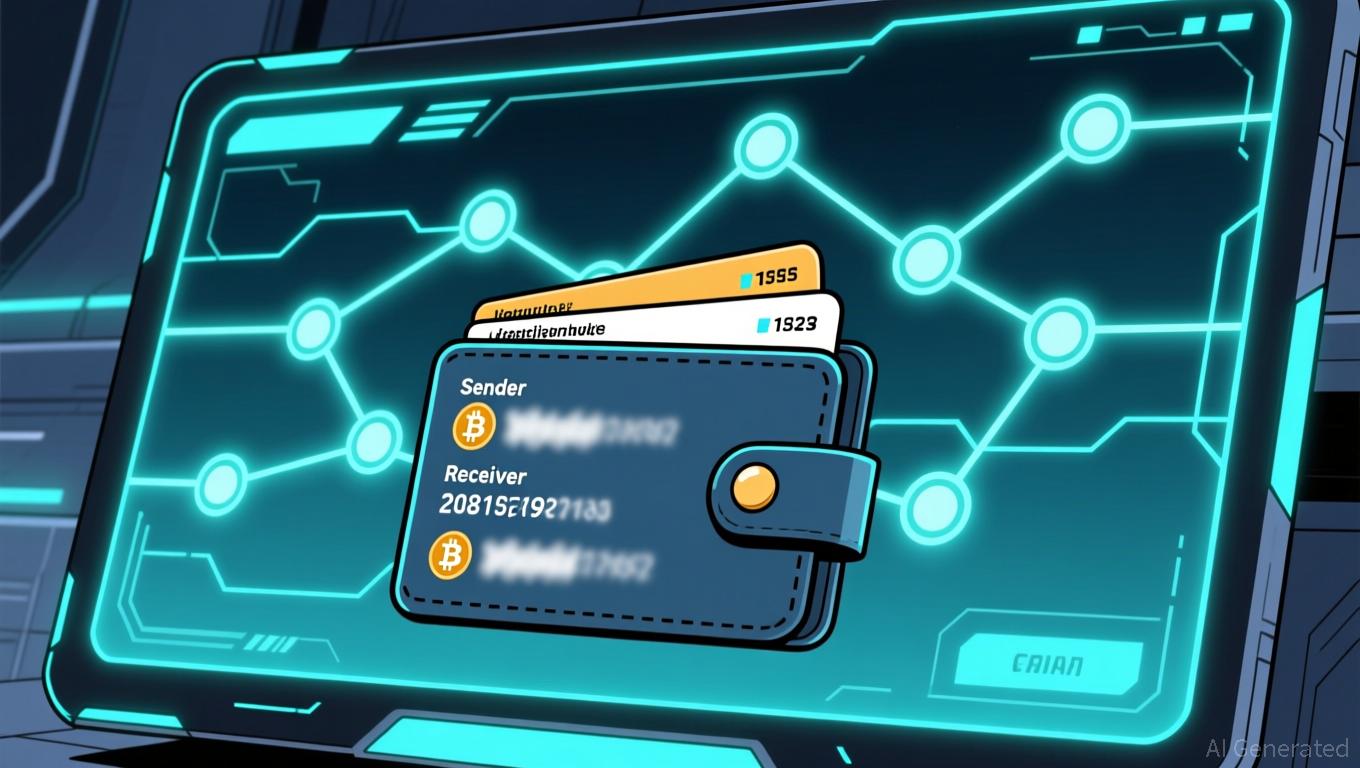Uniswap News Today: ZK Technology Secures $9 Million Funding to Transform Trustless DeFi Rewards
- Uniswap Foundation grants Brevis $9M to build a trustless gas rebate program for v4 hooked pools via ZK proofs. - The system uses off-chain computation and cryptographic verification to reduce costs while maintaining DeFi decentralization. - Routers gain economic incentives to adopt v4's advanced features, potentially boosting liquidity and trader efficiency. - This ZK-powered model could set a precedent for scalable, transparent DeFi incentives across blockchain ecosystems.
The
Uniswap v4, which debuted in January 2025, brought in customizable "hooked pools" that let developers integrate features like on-chain limit orders, automated liquidity compounding, and MEV-resistant mechanisms, according to a

Brevis’s solution uses off-chain processing to assess rebate eligibility, producing cryptographic proofs that are subsequently checked on-chain through smart contracts, as explained by ChainCatcher. This approach sidesteps the high costs and scalability concerns of on-chain computation while preserving trustless verification. Routers can apply these rebates to reduce their own costs, share savings with users, or grow sustainable treasuries, creating a cycle that promotes wider use of v4’s capabilities, according to the Brevis announcement.
This partnership highlights a broader mission: making DeFi more user-friendly and efficient. By cutting gas costs and simplifying aggregator integration, the initiative improves the user experience and encourages innovation, as noted in the Revolutionary Uniswap Foundation Grant coverage. For developers, the financial rewards linked to v4’s hooks accelerate the testing of advanced AMM (Automated Market Maker) features, potentially opening doors to new applications like algorithmic trading and yield strategies, the LookonChain report observes.
The Uniswap Foundation’s funding also reflects a wider industry shift toward ZK technology for better scalability and privacy. Brevis’s involvement underscores the rising significance of off-chain computation in overcoming blockchain throughput challenges without sacrificing security, a point emphasized by ChainCatcher. The trustless design of the rebate program ensures that no single party oversees verification, upholding DeFi’s key value of decentralization, as stated in the Revolutionary Uniswap Foundation Grant.
Looking forward, this initiative could become a model for future DeFi projects. By showing how ZK proofs can expand incentive programs while keeping processes transparent, the collaboration between Uniswap and Brevis may encourage similar approaches across other blockchain platforms, according to the LookonChain report. For now, the main goal is to boost v4’s adoption: increased liquidity from aggregated pools could result in narrower spreads and less slippage for traders, while developers benefit from a solid foundation for building advanced financial applications, the Brevis announcement concludes.
Disclaimer: The content of this article solely reflects the author's opinion and does not represent the platform in any capacity. This article is not intended to serve as a reference for making investment decisions.
You may also like
Bitcoin Updates: IMF Warns of Widespread Risks Amid Growing Popularity of Tokenized Finance
- IMF highlights tokenized finance's efficiency gains but warns of systemic risks like smart contract interdependencies and liquidity vulnerabilities. - Upcoming Chainlink ETFs signal growing institutional adoption, with Grayscale and Bitwise advancing regulated exposure to $100B+ oracle network assets. - Analysts predict over 100 new crypto ETFs in six months, but XRP's 18% price drop underscores market volatility despite regulatory approvals. - IMF anticipates regulatory frameworks to address cross-platf

South Korea's Revamped AML Framework: Is It Possible to Balance Security with Innovation?
- South Korea's FSC overhauls AML rules to tighten crypto transaction oversight, targeting transfers under $680 and expanding pre-emptive freezes. - The crackdown follows Upbit's $30M hack linked to North Korea, prompting tax authority raids and blockchain tracking for evasion cases. - AI-powered monitoring flagged 200 suspicious accounts in 2 months, balancing automation with manual audits to detect illicit patterns. - Global enforcement remains fragmented as South Korea pushes stricter VASP registration,

"Privacy or Compliance: The Trust Challenge for Crypto in Payments and DeFi"
- Economist Saifedean Ammous critiques crypto privacy tools like Houdini Pay, arguing centralized compliance models undermine true cryptographic anonymity. - Houdini Pay's "compliant privacy" retains metadata (wallets, IPs) despite hiding onchain addresses, contrasting with zero-knowledge solutions like zkBob. - Balancer's $116M 2025 hack exposed vulnerabilities in audited DeFi protocols, highlighting risks in complex financial primitives like stable pools. - The crypto industry faces a trust dilemma: bala
